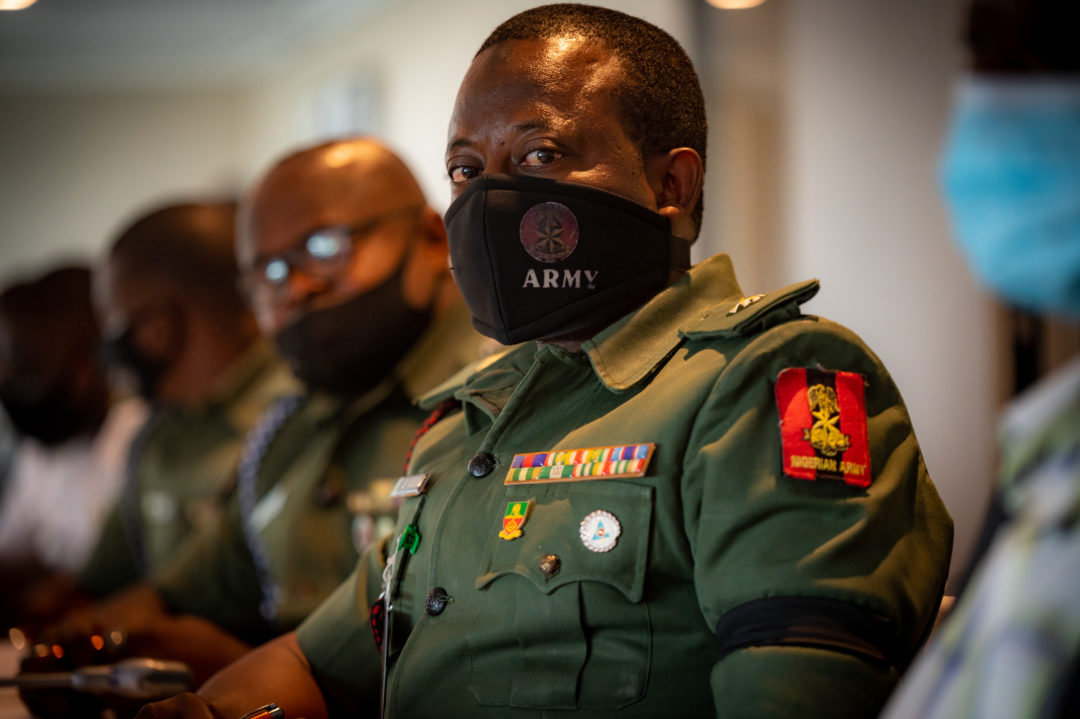Click here for all the event pictures.
At previous Wayamo workshops, representatives of the Nigerian Navy, Army and Air Force discussed the possibility of setting up a highly specialised unit of military investigators and prosecutors, who would be specifically trained to investigate and prosecute alleged war crimes and crimes against humanity, both of which potentially fall under the jurisdiction of the International Criminal Court (ICC).
As a result of these discussions, Wayamo had planned to host its first capacity-building programme for members of the proposed Serious Crimes Response Team on 24 and 25 May 2021. Due to the tragic death on 21 May of Nigeria’s Chief of Army staff, Lt. Gen. Ibrahim Attahiru and 10 other officers in a plane crash, 24th May was declared a national day of mourning. The workshop was thus reduced to a one-day training session on 25 May. The event followed a hybrid model, with members of the military attending in person, and the majority of the experts joining participants via Zoom.
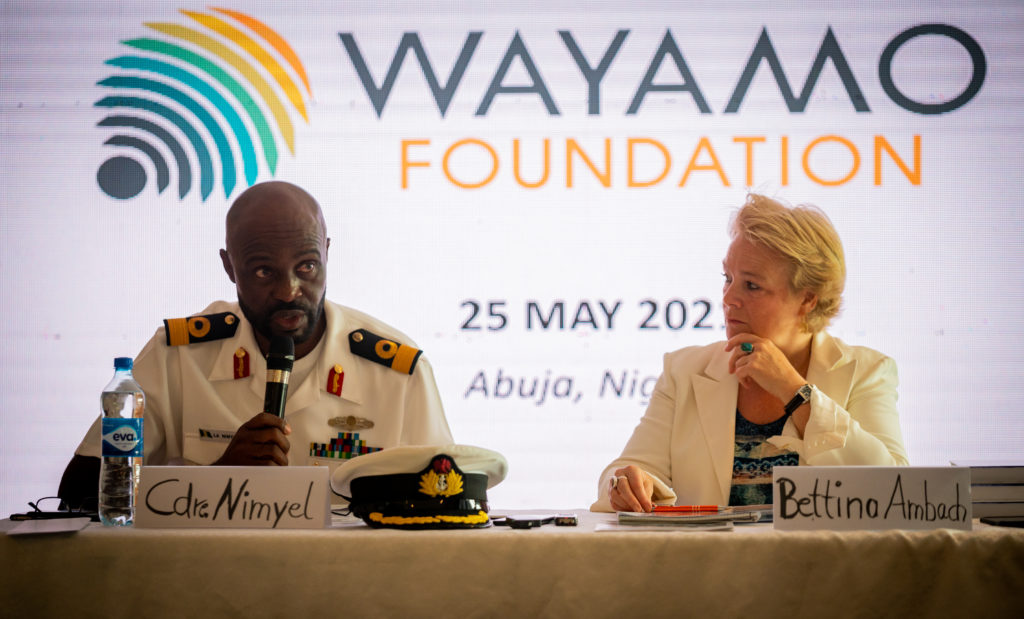
Commodore Nimyel, Director Legal Services Defence Headquarters.
The event was officially opened by Bettina Ambach, Wayamo Director, and Commodore Nimyel, Director of Legal Services, Defence Headquarters. A brief introductory session and discussion amongst the participants was followed by a pre-recorded video lecture by Brigadier-General (Ret) Ken Watkin, QC, former Judge Advocate General of the Canadian Armed Forces, on the importance of accountability within the military. Building on Brigadier-General Watkin’s presentation, Captain Ian Park, Royal Navy, United Kingdom, then joined the group via Zoom to discuss how to investigate and prosecute international crimes committed by the armed forces.
After a short tea break, Dapo Akande, Professor of Public International Law, University of Oxford, joined the participants via Zoom with an introduction to international criminal law. The focus shifted back to Abuja as Olivier Chaléroux, Delegate to the Armed Forces, International Committee of the Red Cross, took the podium to deliver an introduction to international humanitarian law.
The afternoon kicked off with Claus Molitor, OTP Situation Analyst, ICC, and Azra Kuči, OTP Associate Legal Officer, ICC, talking to participants via Zoom about the current state of the relationship between the ICC and Nigeria. They were followed by Major Aminu Mansur Mairuwa, Military Assistant-Director Legal Service, Defence Headquarters/Legal Officer, who briefly spoke about Courts-martial in Nigeria.
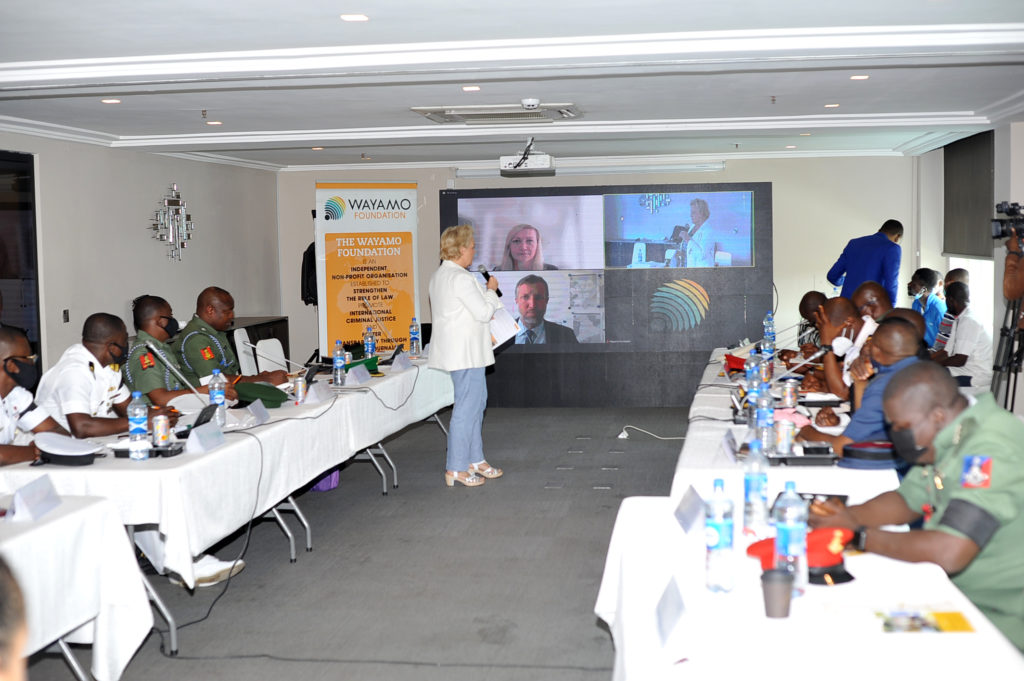
ICC Claus Molitor and Azra Kuci.
Akingbolahan Adeniran, Attorney-General and Commissioner for Justice of Ogun State, had planned to speak on international criminal investigations but, due to a poor internet connection, Charles Adeogun-Phillips, Partner at Charles Anthony LLP and Former Lead International Prosecutor, who was present in the room, took the podium and addressed some of the points that Mr. Adeniran had tried to make.
The last session of the day consisted of a live Zoom Q&A hosted by Brigadier-General (Ret) Ken Watkin on ‘Accountability, oversight and integrity in the military’. His pre-recorded video had been played in the morning, and the participants used the opportunity to put to him the questions that had come up during his session, along with some broader issues that had arisen over the course of the day.
The event was very positively received, with one participant describing it as “educative and very important as well as necessary for the members of the Armed Forces and Nigeria in general.” According to another participant wrote, the lectures had alerted them to “the need to carry out investigations once allegations of human rights violations are made.”

Brig.Gen.Ken Watkin.
In particular, Ken Watkin’s lecture on accountability, oversight and integrity in the military, Dapo Akande’s lecture on international criminal law, and Ian Park’s lecture on the investigation and prosecution of international crimes committed by members of the Armed Forces, resonated with many participants. The lectures were viewed as ‘eye openers’ and as an inspiration to take action. One participant pointed out that “complementarity in the prosecution of international crimes, either by the ICC or by domestic prosecutions, is central.”
Although one participant favoured greater interaction with the ICC and wrote that “there should be collaboration between the Nigerian military and the ICC on the prosecution of war crimes”, a few participants also voiced criticism and argued that “the allegations of war crimes committed by the Nigerian Army, especially in the Baga incident, did not reflect the actual facts of what transpired.” Another participant urged that more understanding be shown towards the military, which was operating under “very complicated circumstances in the north-east.”
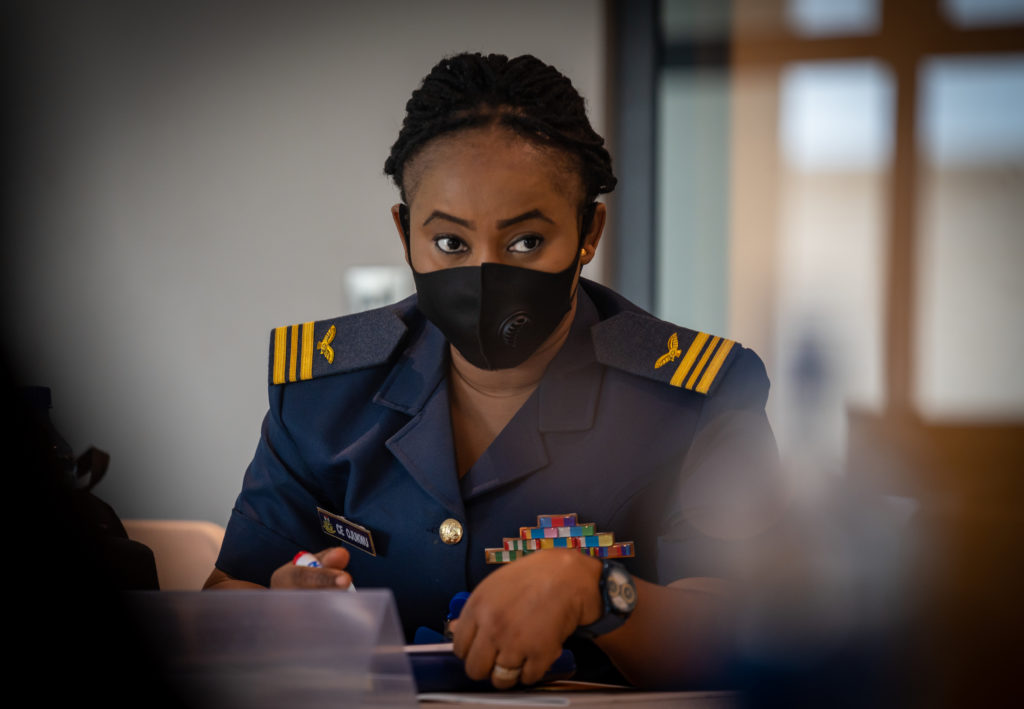
Squadron leader Ojukwu.
Unfortunately, due to the declaration of a national day of mourning and the cancellation of one of the two workshop days, some topics and questions remained unaddressed. This is why Wayamo plans to extend the next workshop (scheduled to take place in August 2021) to three days. It will include topics such as the legal basis for military investigations/trials, command responsibility, the investigation and prosecution of conflict-related sexual violence, and an introduction to battlefield evidence, as well as a discussion on the next practical steps to be taken to ensure that the idea of creating a “Serious Crimes Response Team” takes shape and eventually becomes functional and operational. “Wayamo” one participant wrote, “has taken the bull by the horns, by making serious efforts in putting together a team that will ensure independent and impartial investigations and prosecutions of serious crimes.”
The challenge now is for these efforts to materialise into tangible actions.
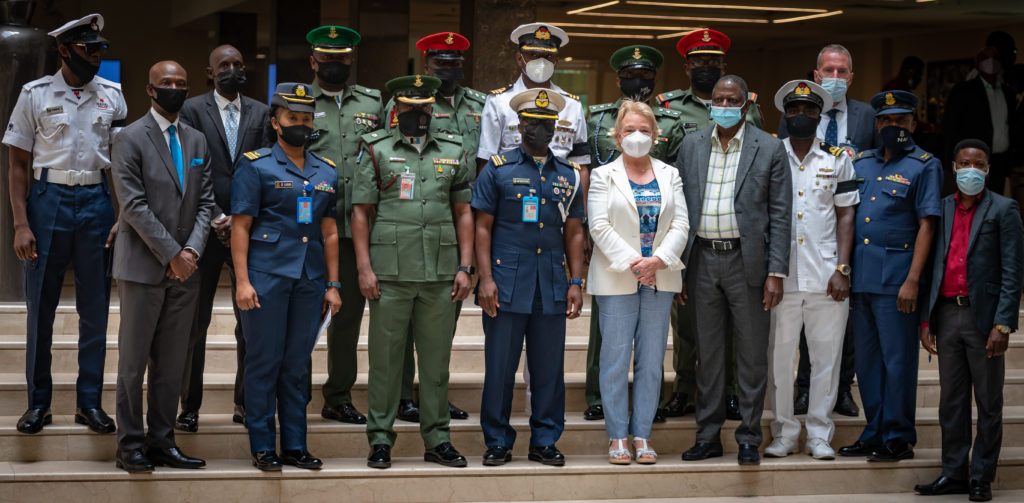
Participants of ‘Serious Crimes Response Team’ training.

